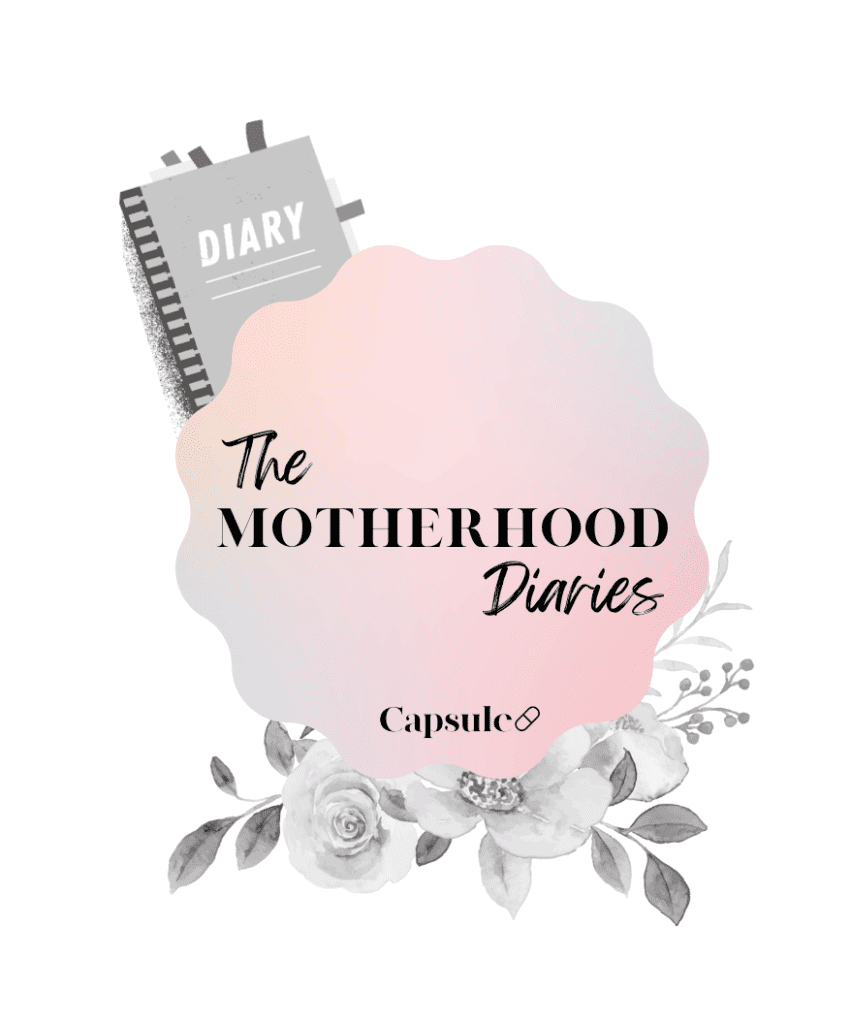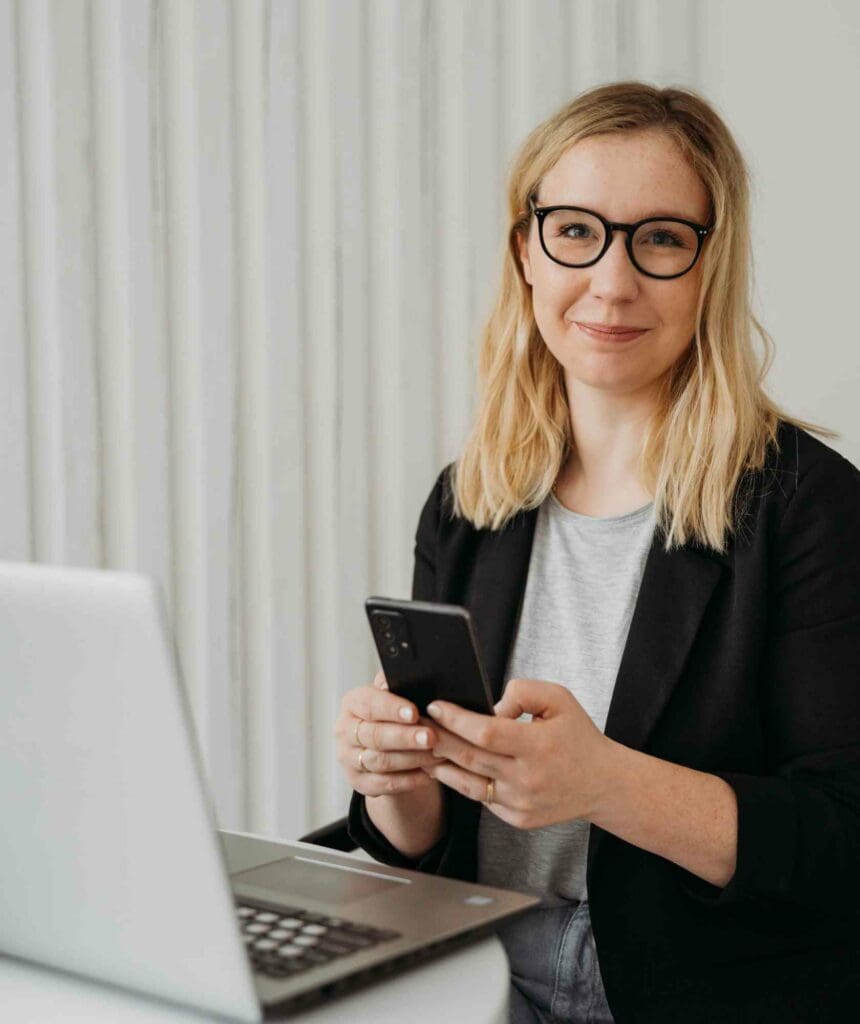
The importance placed on ‘intensive mothering’ means that many parents constantly feel like they’re falling behind. Elise Addlem, an Australian born feminist and motherhood philosopher, talks to Capsule about how it’s not us, it’s the system.
Welcome to our series, The Motherhood Diaries – a safe space for you to share your experiences, advice, hopes and heartbreaks. We’ll be hearing from industry experts giving practical advice alongside Capsule readers (You!) sharing your firsthand experiences. We’re looking at everything from fertility, trying to conceive, pregnancy, the fourth trimester, newborns, toddlers, children’s mental health and teenagers, fertility issues and everything in between!
If going through pregnancy radicalised me as to how we treat women’s bodies, then having a baby has radicalised me as to how we treat women’s time. The labour of parenting is one thing to know in theory and then another thing altogether to discover in practice, and there’s little wonder that a lot of us end up turning to social media to find both information and a community. But, well, that can be a really mixed bag.


Then, in a sea of ‘Hey Mama’ soft-focus reels, came Elise Addlem, an Australian born feminist and motherhood philosopher, out here to provide no-nonsense information about how it’s not you, it’s the system. And we need to hear that. Because we live in a society that tells us to give 100% to our work plus give 100% to our child and despite what the motivational posters at the gym might tell you, you actually cannot give 200% to anything.
“Mothers have two conflicting ideologies that cause a lot of that mum guilt, because they’re simply not compatible,” says Elise. “On the one hand, you have liberal feminism. And that’s the feminism within a capitalist society that’s telling you ‘You need to be a girl boss, you need to be a mum boss, you need to go to work and self-actualise; just because you had a kid, it doesn’t mean you’re not a unique individual person who can’t make as much money as possible.’”
“Then on the other hand, you have intensive mothering. This is telling mothers that we have to be super involved in our children’s lives, that we need to be there for every moment and if we’re not, then we’re breaking the attachment between us and our child. We should be researching every single thing; we should be totally devoted to our child and give all of ourselves to our child.”
It’s unpacking the tangled influences around this current state of motherhood that has made up much of Elise’s recent work. A background in philosophy means that, as she puts it, Elise has always been looking at how different ideologies intersect in society. And then having her own child put a lot of those themes into practice.
‘Despite all my knowledge of feminism and social dynamics and power structures, I still did become pretty overwhelmed with the day to day work of looking after my child.’
“Despite all my knowledge of feminism and social dynamics and power structures, I still did become pretty overwhelmed with the day to day work of looking after my child,” Elise says. “I was shocked by how much it takes from you but also shocked by how much my sense of self was then connected to my child, in both a good and a bad way. I wasn’t ready for the fact that this kid would definitely become my entire world, that I wouldn’t care about things that I had cared about before.”
Thanks to having a supportive and heavily involved partner and a level of income that allowed for options like a cleaner and babysitter, Elise said the struggle to adjust to her new life was short-lived. But it raised her antennae as to how profoundly motherhood upends a person’s physical, mental and social selves, and how that transformation is undervalued by society.
“Usually, we talk about ‘baby brain,’ or ‘mummy brain’ and we talk about how mothers, and people socialised as women, become dumb and clueless, and all these derogatory terms,” she says. But a growing interest in the term ‘matrescence’ – the physical, mental and emotional transition that comes with becoming a mother – is a better and more accurate way of describing this time. “Matrescence is a way to reclaim that, to see it as a really important part of life. It’s empowering – people start thinking, ‘wait, I’m not falling apart; I’m growing and turning into something new.’”
Just under a year ago, Elise turned her philosophical lens on the world of parenthood and in particular the layered dynamics of heterosexual relationships; the overwhelming pressure put on mothers. One of the reasons that caregiving is discussed in such sacrosanct terms – but, simultaneously, is not valued enough to be paid work – is because it has long been the domain of women. This is where the tangled influences of living in a neoliberalist, capitalist and patriarchal society are so important to understand, Elise says. And if you’re someone who nods along with those concepts in conversation but doesn’t 100% understand them (*raises hand*) then here is Elise’s cut-down version.
‘Modelling martyrdom to your child is not healthy for them, or for you.’
Capitalism is a view that society should be based on exchanging goods and services for profit, and neoliberalism is a late stage capitalist ideology which rose in popularity in the 1980s and is the ideological shift that really heightens every time we’re in election season. Instead of having the government heavily involved in social services like hospitals, schools and childcare, neoliberalism argues that everything should be privately owned, to increase competition between companies so that in theory you, the individual, get the lowest price.
This ideology also states that every individual should be as self-sufficient as possible, working as hard as they can to get what they need – and if they don’t, if they need any help, then that’s their own failure. Throw in the patriarchy, the idea that society is run by men, for men, and that women are inferior, and you have the holy trinity from hell.
The vicious little combination of these can be seen in multiple arenas, but Elise uses the example of child care to illustrate her point. Childcare is expensive and there is a shortage of workers because “care work has traditionally been done by women and it is undervalued because of that, and also because it is seen as being unproductive,” she says. It’s the kind of work that society expects to be paid for with “love and virtue,” even if the idea of wrangling a group of children under the age of three feels more like a military operation than a virtuous one.
So that’s capitalism and patriarchy and then, in 2023, we have the added layer of being in a neoliberalist society where a lot of childcare is privatised because “people need to look after themselves”. Basically, you know how any time a woman or primary caregiver dares to open their mouths and complain about the work of parenting and the knee-jerk public reaction is ‘well, you chose to have children so you should have known?’ That’s because we live in a society that says you should work as hard as possible, in paid work, ask for absolutely nothing and never complain, which is in direct contradiction to the idea – and ideal reality – that ‘it takes a village’ to raise a child. When in reality, there is no village because no-one can afford to take time away from work, so you have to pay for your village but even that as a paid resource is in short supply because it’s undervalued and therefore underpaid work.
Ta da! And that’s just one aspect of motherhood – you can view parental leave, part-time and flexible work, working from home, etc through that multi-layered lens and then understand why mothers in 2023 are mostly having the same fights their own mothers were having, a generation earlier.
It’s also important to understand the influences at work, Elise says, rather than trying to discover the perfect life hack that’s going to suddenly make your busy household run smoothly and effortlessly. “It’s super popular these days to talk about the division of labour at home – and that’s fantastic, because it is a problem,” she says. “But if we just address that, we’re not addressing the fact that in a neoliberalist, capitalist society, everyone is so burnt out and struggling to make ends meet, that’s also impacting the dynamics at home, and the ability for people to enjoy their life and their parenthood. Because as much as you can have two equal parents at home dividing the labour, they’re still both going to be exhausted because society asks so much of them.”
So, while we can’t fix our mental load, or society at large quickly, we can at least be informed enough to know that it’s not just our individual problem, our own inability to just get it done. And maybe, just maybe, we can realise that mum guilt comes not from a place of personal failing but from a place of societal overwhelm.
‘Nothing can be right in the heads of mothers because we have this different messaging coming at us!’
“Nothing can be right in the heads of mothers because we have this different messaging coming at us!” she laughs. “We can’t have any single thought about our child that’s not somehow problematic. There’s this idea that we should be so obsessed with our children – and some people are, and that’s fine – but if we’re not, it doesn’t mean that we’re bad mothers. We are actually whole human beings, separate from our children and it’s good for our children to see that. Modelling martyrdom to your child is not healthy for them, or for you.”
In other words… Hey mama. You really are doing a great job.
Click here for more information on Elise’s upcoming online workshop, Fuck Mum Guilt.

